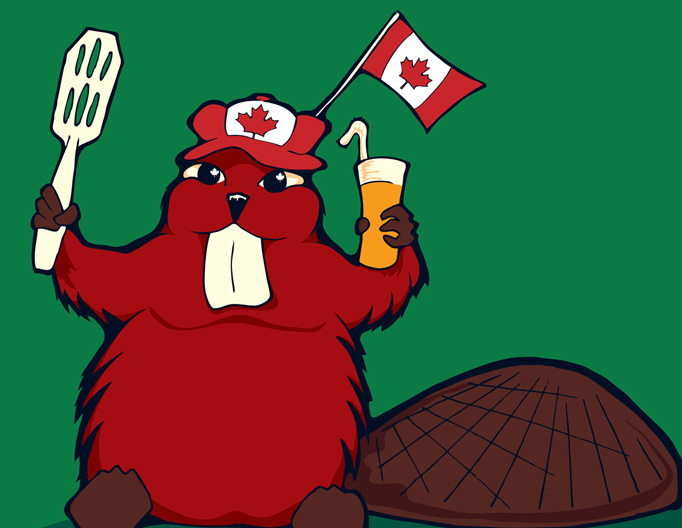
By Katie Stobbart (The Cascade) – Email
Print Edition: July 2, 2014

By the time this paper is published, Canada will be 147 years old. We’ll have taken down our flags and closed the tabs with those listicles we read on all the things Canadians do — you know, to brush up in case we’re missing anything beyond maple syrup and saying sorry a lot. The post-fireworks haze will have long dissipated.
Even if you have managed to avoid sociology, history, political science, or Canadian literature courses, you’re probably aware Canada has some identity issues. The big questions — who are we? Where did we come from? Where are we going? How much is it all going to cost? — are difficult for us to answer with any kind of unanimity. Canada Day seems to be the one day (unless this happens at hockey games) when we can forget all that stuff, dress in red and white, and have a parade in weather that could melt an igloo in 60 seconds.
Otherwise, I worry that the defining feature of being Canadian involves a lot of apologizing, guilt, and burying our heads in the snow.
The word “patriotism” starts to feel a little disingenuous until we load it with beaver tails, moose, geese, maple leaves, beer, polar bears, a sailboat, the sea-to-sea thing, and a Tim Horton’s cup to boil it all down into something sugary but palatable — something we can drink so we don’t have to dwell on some of the unpalatable things we’ve done and said in the past.
There’s also, of course, the narrative of denial to fall back on when all that fails: “We’re Canadian because
we’re not—” American. Pirates. White-walkers.
One problem with defining Canada as a nation is geography. One of our big unifying symbols (sea to sea to sea) is also a threat to our unity. How much does someone from Vancouver really have in common with a citizen of Swift Current? Drumheller? Montreal? Yellowknife? Fredericton? Sure, we could probably all carry a decent conversation about the weather (if you brought up pipelines, you might be there a while). But ultimately it’s all coming back to beer, beavers, and good old Tim’s.
But there are stickier divisions than imaginary borders at play in our identity problems. Another major obstacle to unity — and possibly a reason we keep changing the subject back to the merits of maple syrup — is the still violently purple bruise of colonization, railroads, internment, ships full of refugees — take your pick. Apologies are topical: they have made for some great photo-ops but seem to fail as balm for wounds that go right into the marrow.
In “What is a Nation?” Ernst Renan suggests a big part of nation-building is getting over the strife that went into birthing the country in the first place.
“Forgetting, I would even go so far as to say historical error, is a crucial factor in the creation of a nation,” he writes.
Maybe Canada Day is our small annual foray into that process: if we can sit back together and just enjoy the fireworks, that’s not such a bad thing. But most of the time, I’m reminded strongly of the Dixie Chicks’ approach to forgetting: “Forgive? Sounds good. Forget? I’m not sure I could. They say time heals everything, but I’m still waiting.”

